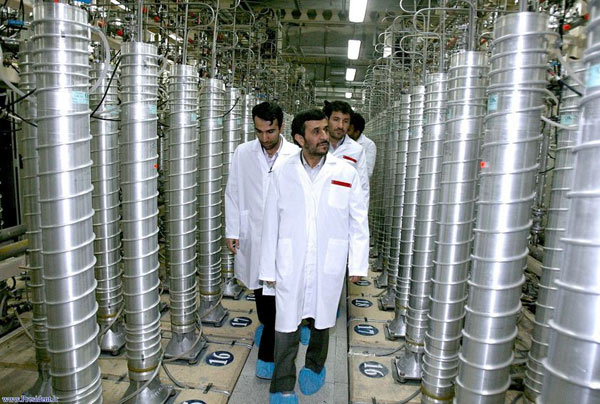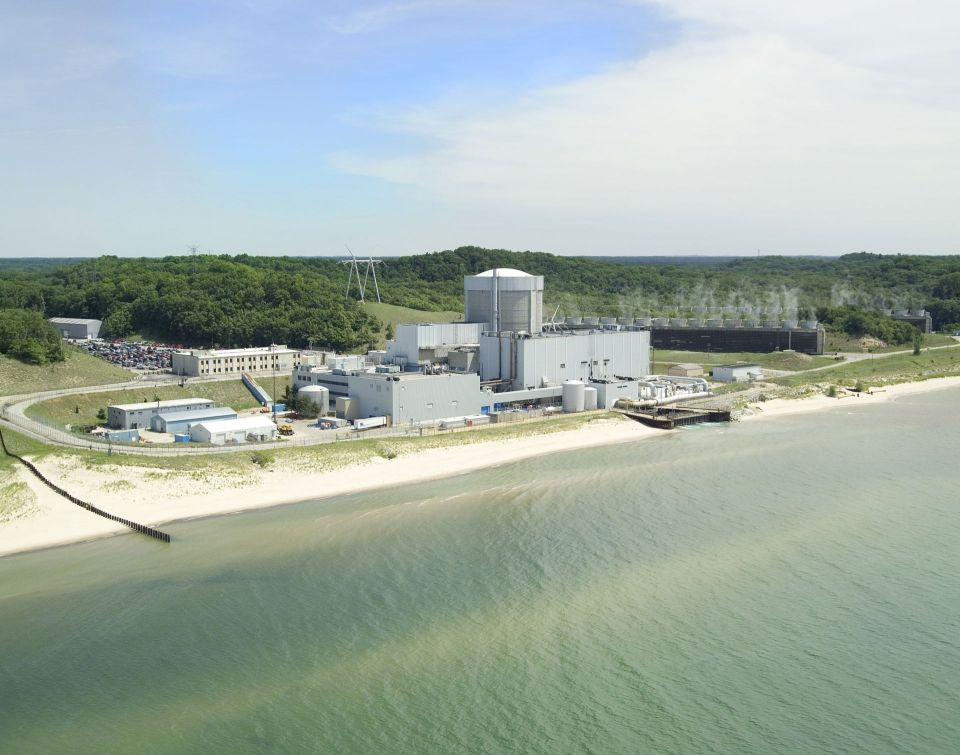Will the nuclear fuel bank open for business?
Financing may dry up if nations don't act soon
 On September 20, U.S. Energy Secretary Steven Chu brought a suitcase full of carrots and sticks to the annual meeting of the International Atomic Energy Agency (IAEA). Getting his luggage through airport security and customs was easy. The hard part is getting the other nations of the world to listen to reason. The main issue at hand is the establishment of an international fuel bank for commercial nuclear reactors.
On September 20, U.S. Energy Secretary Steven Chu brought a suitcase full of carrots and sticks to the annual meeting of the International Atomic Energy Agency (IAEA). Getting his luggage through airport security and customs was easy. The hard part is getting the other nations of the world to listen to reason. The main issue at hand is the establishment of an international fuel bank for commercial nuclear reactors.
The main carrot is $50 million the United States has pledged to set up a nuclear fuel bank so that other nations that want civilian nuclear energy don't have to build uranium enrichment plants. This is an important step in controlling dual-use technology that can also be used to make weapons grade materials. If the IAEA doesn't get off the dime and set up the fuel bank soon, the U.S. will withdraw the pledge.
Chu said the United States is pledging to provide a third of the initial resources needed for the fuel bank.
"We have also contributed $50 million to the IAEA to support an international fuel bank administered by the Agency. Taken together with pledges from the Nuclear Threat Initiative and other Member States, $150 million has been pledged for this purpose."
The main stick, the Global Security Newswire (GSN) reported, is that offers of funding for a proposed civilian nuclear fuel bank "will disappear" if the IAEA doesn't "move quickly" to set one up. Chu wants the IAEA to make up its mind, and soon, and stop dithering over different ideas about how to organize the fuel bank. This will be difficult. The IAEA has 151 member states, and 35 of them sit on its board, which is chaired this year by Pakistan.
According to GSN, the heart of the multi-nation fuel bank proposal is to spend the $150 million to acquire up to 80 tons of low-enriched uranium (3-5 percent U-235) that would give the IAEA-sponsored fuel bank the ability to distribute the fuel at market rates to as many as 60 countries. So far, Chu said, the United States has blended down 17.4 metric tons of highly enriched uranium (HEU) to LEU to support the fuel assurance program. This is just over one-fifth of the total amount of LEU needed to supply the fuel bank.
IAEA needs to make a decision
 The 35-nation board of the IAEA is expected to take up the fuel bank decision in December. The board, which is divided by the interests of its member nations, has spent several years analyzing different alternatives for the fuel bank. Chu told the group it is time to fish or cut bait.
The 35-nation board of the IAEA is expected to take up the fuel bank decision in December. The board, which is divided by the interests of its member nations, has spent several years analyzing different alternatives for the fuel bank. Chu told the group it is time to fish or cut bait.
"This offer has been extended several times and presents member states with an excellent opportunity to realize one of the founding objectives of the IAEA. These resources will be at risk if we do not reach a decision soon. It is now time to move beyond general discussion and debate of fuel bank principles."
The board has already considered a proposal from Russia to establish a fuel bank at Angarsk in Siberia. Under this plan, Russia would set up a commercial uranium enrichment operation with international safeguards.
It isn't clear if the IAEA took seriously the risk of losing the pledged funding if it can't reach a consensus on a plan. IAEA Director Yukia Amano said that more diplomatic meetings were necessary for the agency to make up its mind.
If wishes were fishes, Secretary Chu would be knee deep in flounder. The response from the IAEA wasn't the one he wanted, but it was all he is going to get, at least for now. The IAEA has until the end of 2010 to come to an agreement to deploy the fuel bank.
Poking Iran with a diplomatic stick
 Chu's comments came as part of a major speech he made to the IAEA delegates on September 21. It included more carrots and sticks, with a lot of them intended to get Iran's attention. Chu said that an IAEA report issued in September "outlined how Iran refuses to cooperate" with the IAEA.
Chu's comments came as part of a major speech he made to the IAEA delegates on September 21. It included more carrots and sticks, with a lot of them intended to get Iran's attention. Chu said that an IAEA report issued in September "outlined how Iran refuses to cooperate" with the IAEA.
He said that countries that do not adhere to their safeguards commitments "will face real and timely consequences."
While Iran was a specific target in Chu's speech, he also put his comments in an international perspective.
"No nation has a monopoly on nuclear power, and no nation alone can manage its inherent risks."
Setting an international nuclear agenda
Chu's speech then got down to business with a substantive description of its four main themes:
• Peaceful use of nuclear energy
• Nonproliferation & international safeguards
• Disarmament
• Keeping nuclear materials out of the hands of terrorists
- Nuclear energy
The U.S. objective is for countries to have assured supplies of nuclear fuel at market rates. The United States has only one truly commercial producer (USEC NYSE:USU) of commercial fuel. Urenco's new enrichment plant, in Eunice, N.M., is operated through its U.S. subsidiary. It follows that an international fuel bank would be an agreement predominately among state-owned firms.
- Nonproliferation
The Department of Energy has started an effort called the Next Generation Safeguards Initiative to identify technology gaps and solutions, train new experts, and develop new approaches to improve international safeguards. The project was announced just days before Chu spoke in Vienna.
- Disarmament
In April, the United States and Russia signed a landmark new START Treaty that reduces deployed nuclear warheads by one-third and strategic delivery vehicles by one half. On September 16, the Senate Foreign Relations Committee approved the treaty by a vote of 14-4.
A Senate floor vote was not scheduled because the Democratic leadership felt it didn't have the votes. Congress has since gone home for the November elections, which puts the vote into the hands of a lame duck Congress in December.
- Nuclear Security
The objective is to secure all vulnerable nuclear materials globally within four years. So far, the United States has removed HEU from 18 countries. The U.S. is providing technical assistance to other nations with physical protection measures for storage and transportation systems. Guidance is also being distributed through the IAEA.
Tooting the White House horn
 Chu got a chance to take credit for the Obama administration's positive steps to support nuclear energy.
Chu got a chance to take credit for the Obama administration's positive steps to support nuclear energy.
"At home, the United States has secured loan guarantees for new nuclear power and fuel facility construction, established a Blue Ribbon Commission to develop recommendations for the long-term management and disposition of used fuel and high-level waste, and committed to a robust, science-based nuclear research and development effort."
The Obama administration has rebranded the Global Nuclear Energy Partnership (GNEP), calling it the International Framework for Nuclear Energy Cooperation (IFNEC). While it doesn't make a snappy acronym, the DOE is moving ahead with a broader international scope for the program.
The DOE will provide advice and international mechanisms on infrastructure development and fuel services for nations developing and expanding their civilian nuclear energy programs.
____________________________
Dan Yurman publishes Idaho Samizdat, a blog about nuclear energy. He is a contributing reporter for Fuel Cycle Week covering uranium mining in the U.S. and Canada.
# # #




